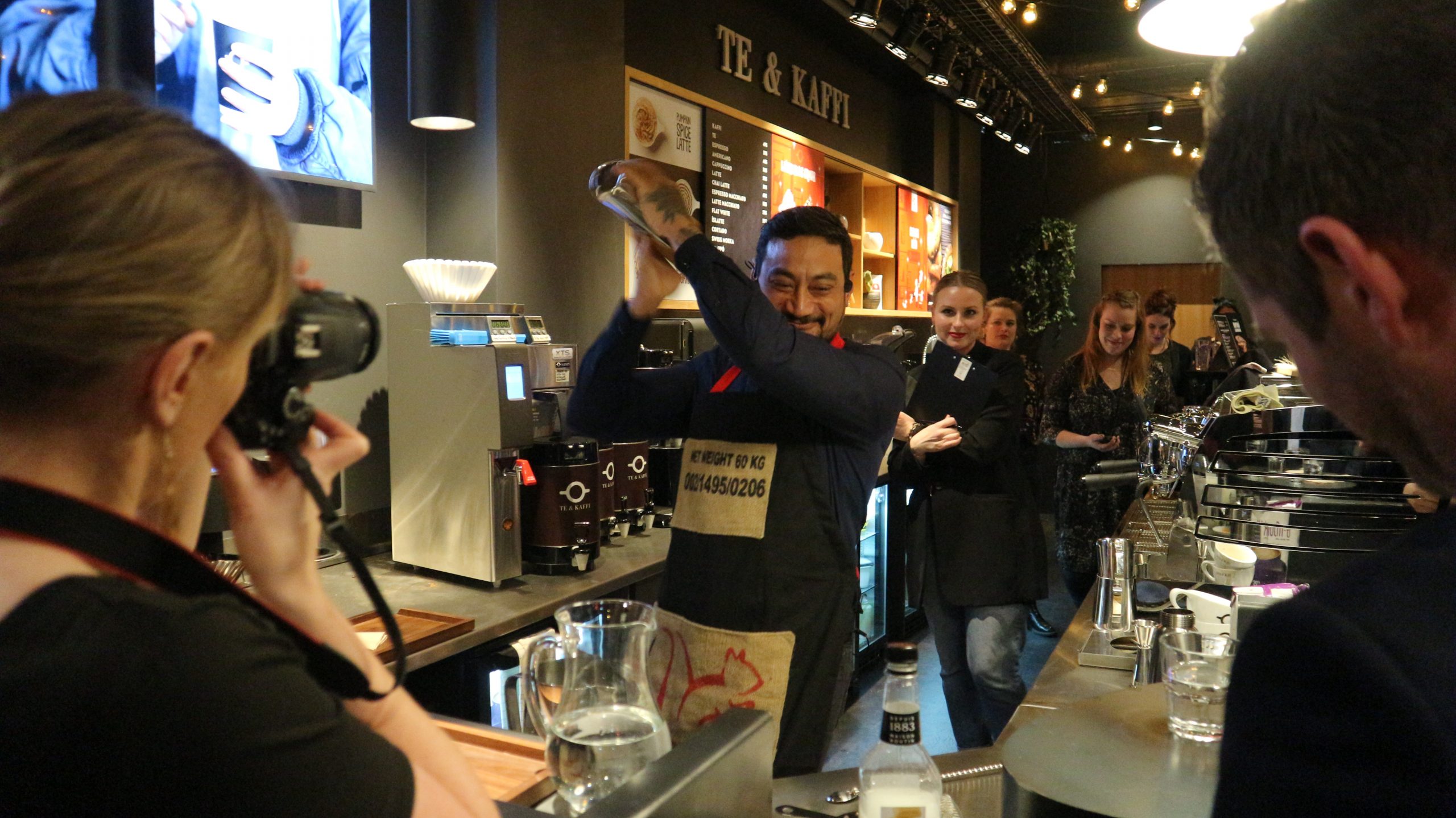The Barista in Iceland
If there is a country where the role of the barista is valued as the great specialist in the preparation of coffee drinks than it would be Iceland.
To read in Spanish go to http://www.essenceofcoffee.net/islandia-valora-baristas/
Not in vain was he a forerunner in using the term barista in Icelandic to refer to them and has become a role model for other countries. Our collaborator Amilka Lee tells us, author of the blog coffeelovers.es, who has been working there as a barista.
The figure of the barista was not always known in Europe and appears in parallel to the third wave of coffee, a movement focused on producing and serving high-quality coffee, reaches the Scandinavian countries, where the consumption per capita is the highest in the world, and extends throughout the continent reaching the Mediterranean countries.

In Iceland, coffee establishments have professional baristas.
And it is no coincidence that the European barista movement emerged from Scandinavia. Apart from the large consumption of coffee in countries such as Norway, Sweden, Finland, Denmark and Iceland, there is a greater awareness of fair trade and sustainability, values that go hand in hand with those of the third wave of coffee that considers coffee as a craft food. In fact, the Specialty Coffee Association of Europe was founded in 1998 in Norway, the same year in which the first Norwegian Barista Championship was held. It was the seed for the first World Barista Championship, held in the city of Monaco in the year 2000 with a clear Scandinavian domain: 1st Robert Thoresen (Norway), 2nd Erla Kristisdottir (Iceland) and 3rd Martin Hildebrandt (Denmark).
The barista movement arises in Iceland at the same time as in Norway and Denmark and to understand why it is necessary to review a little the history of Iceland. Iceland was part of the kingdom of Norway from 1262 to 1814 and from 1830 to 1944 was controlled by the Danish Crown which was its connection to the continent (culture, politics and raw materials) and its only provider of roasted coffee until 1984 sees the first Icelandic company that decides to buy green coffee and toast it.
Personally, in the country, I was lucky enough to meet Sonja Grant, barista, toaster, trainer and Icelandic businesswoman. She has worked with specialty coffee since 1995, spending 13 years with Kaffitár as a barista, trainer, general manager and quality controller. In 2008, she founded and directed the first cafeteria and micro-roaster of the third wave in Iceland and in 2016 she promoted Kaffibrughusið, a cafeteria, micro-roaster and training room. She is one of the pioneers of the World Barista Championship and other barista competitions. She has also been involved in the organization and development of the judging system since 2000.

The figure of the barista is well-known in Iceland as they are responsible for preparing coffee drinks in all coffee shops.
Last summer I met with her to interview her and, accompanied by a few cups of coffee, we chatted about the reality barista in Iceland from its beginnings to our days. When Sonja started working as a barista, in 1995, there was no name or job category that defined the work and functions of the barista, he or she, was just a person who worked in a cafeteria. It is from the first championships in Norway and Monte Carlo when the name of barista began to be used to define the waiter whose knowledge about coffee goes beyond its preparation. "After the year 2000 we could have used the word barista, but decided to translate it into Icelandic as kaffibarþjónn so that the Icelandic baristas had something to be proud of," she told me. The figure of the barista is well known in Iceland as responsible for preparing coffee drinks in establishments such as coffee shops, restaurants or hotels. "The SCA diplomas help to know the level of knowledge of the barista and the ideal would be that with each one is accompanied by a different salary stretch but, unfortunately, as happens in other countries, being a barista is not a job with a salary high". "Between a new barista and another experienced one, the difference is not much, since the price of the cup of coffee is what it is and is closely linked to the economy of the country, that is, even if the cup of coffee has a higher price In other countries, the costs are also higher, leaving little room for manoeuvre, "he adds.

Sonja Grant, pioneer of specialty coffee in Iceland with Amilka Javier Lee Gámiz, author of the article.
Regarding training, there is no school, large companies have training programs and tests to establish the level of each barista and its category. For example, the company in which he worked has three different categories of baristas: A (very experienced), B (less experienced but with knowledge of the preparations) and C (in training). To increase the level and salary it is necessary to pass a test. "Being a barista is a different profession because we learn by working. We can read all the books and it would be wonderful if everyone was trained in a school but we always have to be behind the counter facing the customer and this is how we really learn, "adds Sonja.
Working as a barista in Iceland has given me the opportunity to put everything I learned into practice, share it and learn new things. In Spain, although we still have a long way to go in terms of general coffee culture, filtering methods and qualities, I have noticed a positive change in my return after spending three years abroad. I have to congratulate all my colleagues for the training that is being done throughout the country, which is outstanding, as well as the coffee championships. Maybe we have a long way to go, but what I do know is that we are on the right path.
Photos: Amilka Javier Lee Gámiz; Te & Kaffi; Kaffitar

